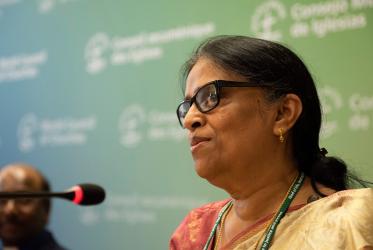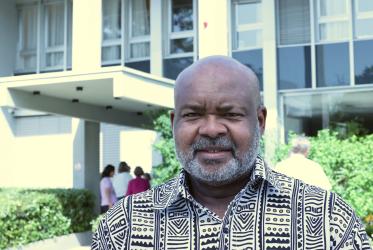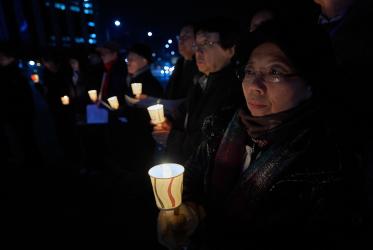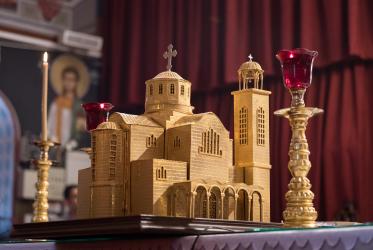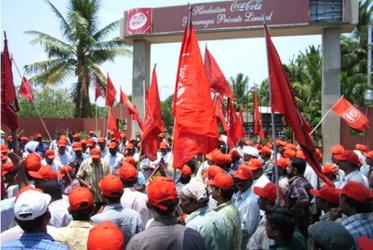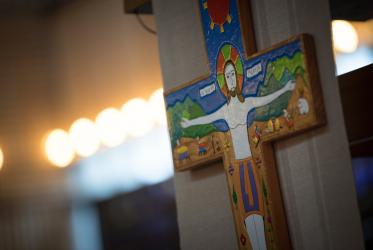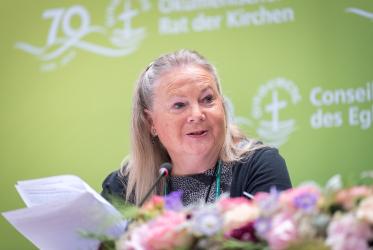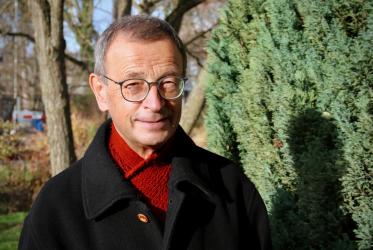Displaying 101 - 120 of 190
Bridging gaps and bringing people to the table
23 June 2022
Groundwater is “a political question”
27 April 2022
Prayer life of Bishop Mary Ann Swenson has deep roots
31 January 2022
Prayers, stories will be the heartbeat of the WCC 11th Assembly
25 January 2022
Brother Alois: Faith in Christ means strengthening unity
21 December 2021
